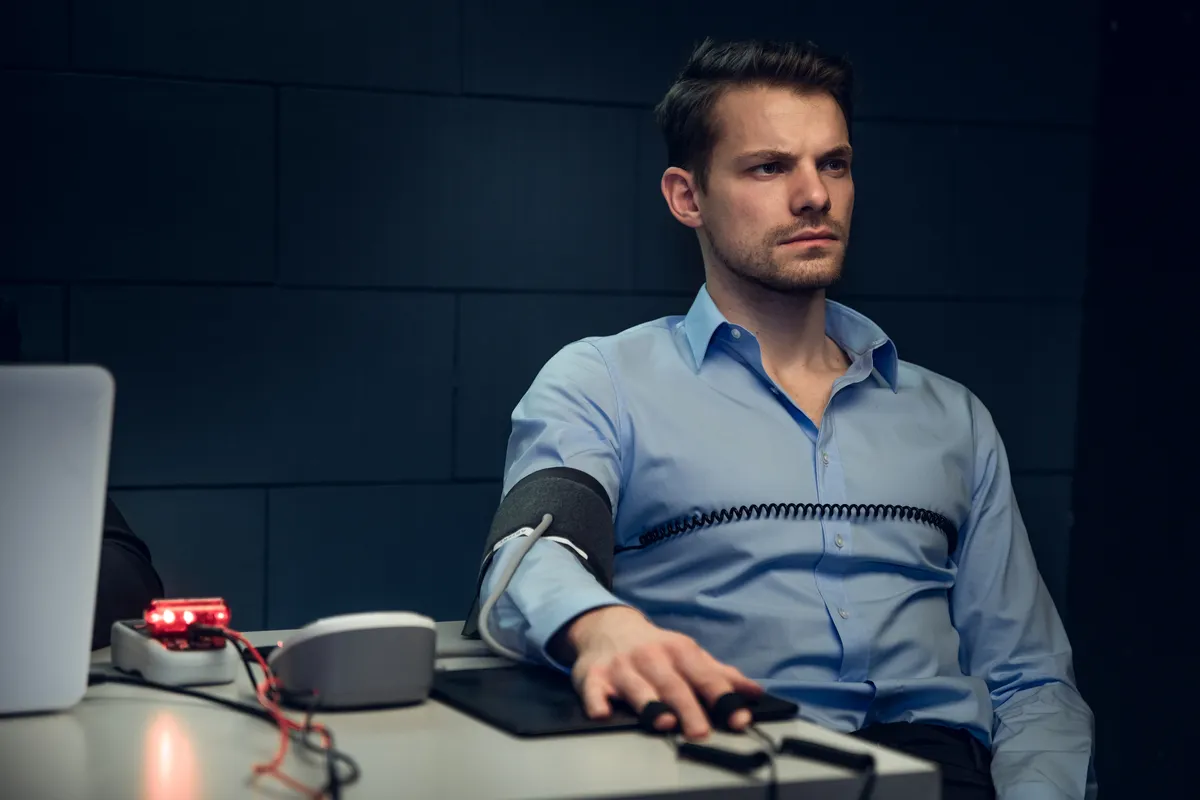Whether it's an innocent white lie, or a deep dark secret years in the making, lying is very much woven into the fabric of society.
But, when you're not dealing with an obvious deception, filled with plot holes and bizarre twists, how can you tell someone is lying? The answer lies in psychology.
We spoke to Richard Wiseman, a professor of the public understanding of psychology at the University of Hertfordshire, for an episode of the podcast Instant Genius. He gave us insights into how to better understand a liar.
He gives tips on how to identify a liar, the body language to look out for, and discusses when it is appropriate to lie.
Are there any tells that can help us identify when someone is telling us a lie?
I did an experiment with the BBC where we would interview politicians on the radio. Some would lie and some would tell the truth with audiences phoning in to say who's lying. Unsurprisingly, no politicians wanted to do it.
We got in contact with a big political interviewer of the time and he agreed to do it instead.
I interviewed him twice, each time about his favourite film. Once he lied to me, once he told the truth. We put them out live on TV. We ended up with about 30,000 calls and what we saw was that the public did the same on television as they do in the lab experiments, which is they were roughly 50/50. In other words, as a group, they couldn't tell when he was lying.
We also ran the transcript in a newspaper and put the audio on the radio. When we stripped away the visual cues, you suddenly saw this big increase in people's lie detecting ability.
The visual cues are highly controllable. How we gesture, smile and look, that's under our control. When you get to the words we say and how we say them, it's not really something we think about very much. And that's where the good cues sit.
Once you focus on audio cues, you become a better lie detector.
A popular example is that if you're lying you look up and to the right, is there any truth in this?
We've looked into that. It is one of the most popular myths out there. I know people that have based big decisions on this belief, it's quite worrying.
Part of this is that we're trying to cut down on faces coming into our heads because faces take up a lot of processing power. If you're trying to remember something, often you look away but is absolutely seen across the world as a sign of deception.
Is it the case? We tested this and found there's no indication at all that the eye movements relate to whether someone is lying.
However, we did this in a controlled lab environment. It's low stakes and it's a sanctioned piece of deception. We then looked at eye movements in a case where people publicly lied and again, absolutely nothing.
There isn't any evidence, as far as I'm aware, that eye movements tell you anything about lying. Yet people have that idea in their head.
Are people able to hide their body language tells when lying?

Some people can, but most people absolutely can't. What you tend to look for in lie detection work is a deviation away from the person's norm.
If someone scratches their nose, it could be a sign of them lying, or perfectly normal behaviour. It's no use to look at one piece of action and decide they're lying because they looked away, maybe they do that all the time.
In lie detection work, we establish a baseline and then you're looking for certain signals away from that baseline. And those signals tend to be verbal.
You're looking for the hesitations, bigger distancing between the end of the question and the beginning of the answer as they think through the lie you're looking for a dropping away of detail.
You're looking for dropping of me, my and I, those sorts of of words. Because lying is cognitively difficult.
In a lie, you have to think through what the person knows, what's going to fit in with my story, what have I said already and all those things tax the person's mind.
Can you become a good liar?
From a psychology perspective, there's this sort of arousal theory.
This is the idea that when we lie to somebody, we feel guilty and therefore will start to sweat and move around, things that people who are physiologically active do.
However, if you told this lie quite a few times or you don't really care very much about lying, or even if you're lying for some greater good, you might not feel that same guilt.
It is also important to remember that lots of lies are in that category, explosive lies are only a very small part of lying.
Most of the time lying bonds us together. You meet somebody in the street and tell them it is great to see them. Maybe that is true, but it might equally be a lie to spare their feelings.
Lying bonds us together as much as pushes us apart. If you don't feel stressed when you lie, you're not going to show any of those signals.
From a cognitive perspective, lying is cognitively difficult. If you've told that story many, many times and you're well rehearsed, liar, well, you're not going to have those cognitive signals. In fact, you may even end up believing the lie yourself because you've told it so many times.
How reliable is a lie detector in testing a lie?
It is a sophisticated piece of equipment that tells how physiologically active a person is. It will tell you how much they're sweating, heart rate, breathing rate and so on.
The question is, is all of this reliably linked to lying? That's quite a contentious topic. And again, it would depend on the situation.

Not surprisingly, if you start putting all these monitors on and you've got a big machine with lots of lights, even someone who isn't lying can get nervous.
Equally, some liars have told a story so many times or don't feel guilty about lying, and therefore are not going to show those signals. So my own perspective is that they are not especially reliable.
They might give you some insight, but they certainly should be taken with a pinch of salt, it is not 100 per cent evidence.
Most of them not admissible evidence in court and I'm quite comfortable about that.
Should you lie to your children?
What we want is kids to lie some of the time. When it's their birthday and someone gives them a present, even if they think it is the worst present ever, we'd want them to lie.
We want them to lie under those circumstances, but other times we want them to tell us the truth. And that's because lying isn't like most bits of complex behaviour. It's not one thing. It's many things. It depends on the situation.
So what we have to tell kids just the truth in that sense, which is that sometimes it's right to lie and sometimes it isn't.
It depends on the situation. Are you lying to make somebody feel good? In which case it's probably alright to tell that lie. Are you lying for your own benefit? And if the person found out you were lying, they'd be furious.
Lying has been around for a long time, and we've survived up until this point. I just think it's a question of being honest about what lying is.
About our expert, Prof Richard Wiseman
Richard is a professor of the public understanding of psychology at the University of Hertfordshire and host of the new podcastOn Your Mind.
Read more:

